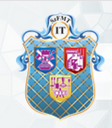INTERVIEW - LÁSZLÓ KOVÁCS
ENTREPRENEUR IN THE CONSTRUCTION INDUSTRY, SPECIALIZING AS A PAINTER

Mr. László Kovács is an entrepreneur in the construction industry, specializing as a painter. This sector has undergone significant changes due to the digital transition, and even training activities for apprentices cannot escape digitization. Aside from his entrepreneurial endeavors,
Mr. László Kovács is actively involved in the professional training of vocational school students and serves as President of the Hungarian Painters’ Professional Association. He imparts his expertise, such as painting techniques, at Kecskeméti Szakképzési Centrum

- How does digital transformation promote growth within your organization?
The rapid advancement of digitalization in the economy has posed challenges for businesses at all levels, including micro-enterprises. We firmly believe that embracing digitalization offers immense opportunities for the future of our profession. Today’s generation is born into a world of digitalization and adeptly utilizes this knowledge. Hence, it becomes crucial for students choosing a profession to consider whether it can leverage their digital skills. If a profession lacks digital aspects, it might not be appealing to students, leading them to opt for other vocational paths.
- What motivates you to participate in the DEAL Ambassador Programme under the project “Deal with Digital WBL”?
There is a prevailing misconception that craft professions are less impacted by digitalization and are resistant to incorporating it into their daily operations. As a participant, I aim to challenge this notion by identifying areas where digital technology can seamlessly integrate into the daily practices of micro-enterprises. For businesses to remain competitive, both domestically and internationally, they must stay attuned to these changes. Furthermore, beyond our business training efforts, we aim to ensure that vocational secondary school programs also include relevant digital competencies, making our craft profession more attractive.
The project aligns with the strategic goals of the labor market, focusing on assessing and transferring digital knowledge. By creating modern training materials that cultivate digital skills, we can enhance employees’ adaptability.
- What are your top 3 expectations from participating in the program?
Through this project, we aim to evaluate existing modern tools and organizational possibilities, and subsequently, create a study that facilitates the development of digital training materials. Gathering insights and best practices from the most advanced European countries will enable us to design a curriculum that imparts highly competitive knowledge.
Our ultimate expectation is that parents will choose vocational secondary schools that offer our profession’s training in line with the demands of the new age, based on the valuable knowledge and practices acquired from this project. This, in turn, will attract more students to pursue careers in our craft profession.
